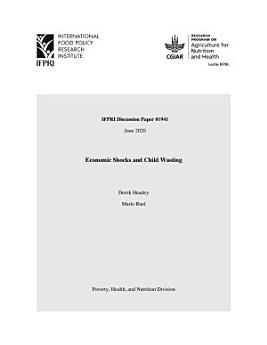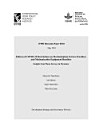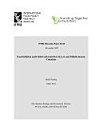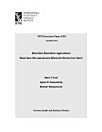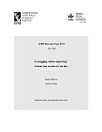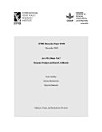Economic shocks and child wasting
Headey, Derek D. · Ruel, Marie T.
IFPRI Discussion Paper Bok 1 · Intl Food Policy Res Inst
E-bok
37
Sider
family_home
Kvalifisert
info
reportVurderinger og anmeldelser blir ikke kontrollert Finn ut mer
Om denne e-boken
In developing countries macroeconomic volatility is common, and severe negative economic shocks can substantially increase poverty and food insecurity. Less well understood are the implications of these contractions for child acute malnutrition (wasting), a major risk factor for under-5 mortality. This study explores the nutritional impacts of growth shocks over 1990-2018 by linking wasting outcomes collected for 1.256 million children from 52 countries to lagged annual changes in national income. Difference-in-difference estimates suggest that a 10% annual decline in national income increases moderate/severe (WHZ<-2) and severe wasting (WHZ<-3) by 14 and 22 percent. An exploration of possible mechanisms suggests negative economic shocks increase risks of diarrhea, fever, and maternal underweight prevalence, and reduce child dietary diversity. Applying these results to the predicted economic impacts of COVID-19 suggests that millions of pre-school children are at increased risk of wasting and wasting-related morbidity and mortality unless urgent preventative action is taken.
Vurder denne e-boken
Fortell oss hva du mener.
Hvordan lese innhold
Smarttelefoner og nettbrett
Installer Google Play Bøker-appen for Android og iPad/iPhone. Den synkroniseres automatisk med kontoen din og lar deg lese både med og uten nett – uansett hvor du er.
Datamaskiner
Du kan lytte til lydbøker du har kjøpt på Google Play, i nettleseren på datamaskinen din.
Lesebrett og andre enheter
For å lese på lesebrett som Kobo eReader må du laste ned en fil og overføre den til enheten din. Følg den detaljerte veiledningen i brukerstøtten for å overføre filene til støttede lesebrett.
